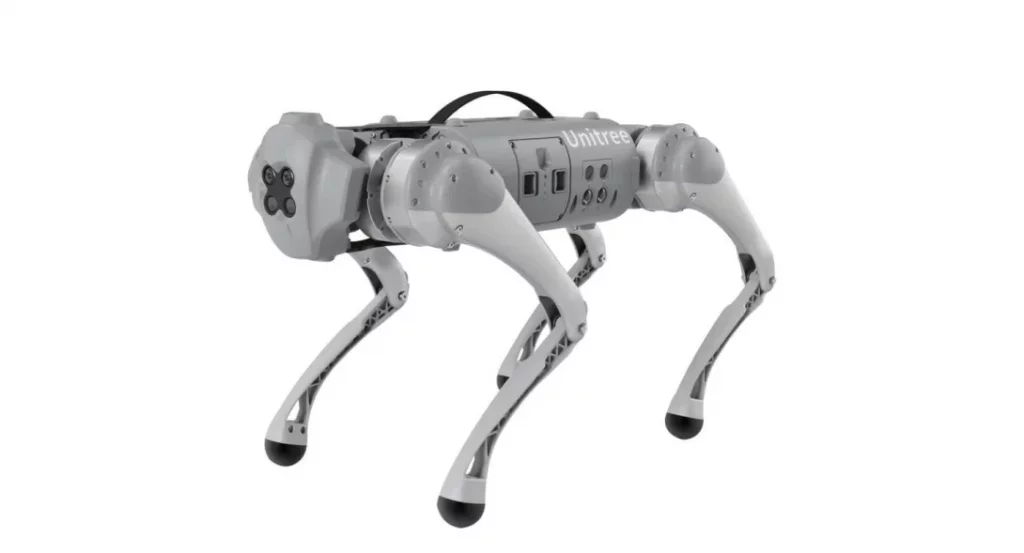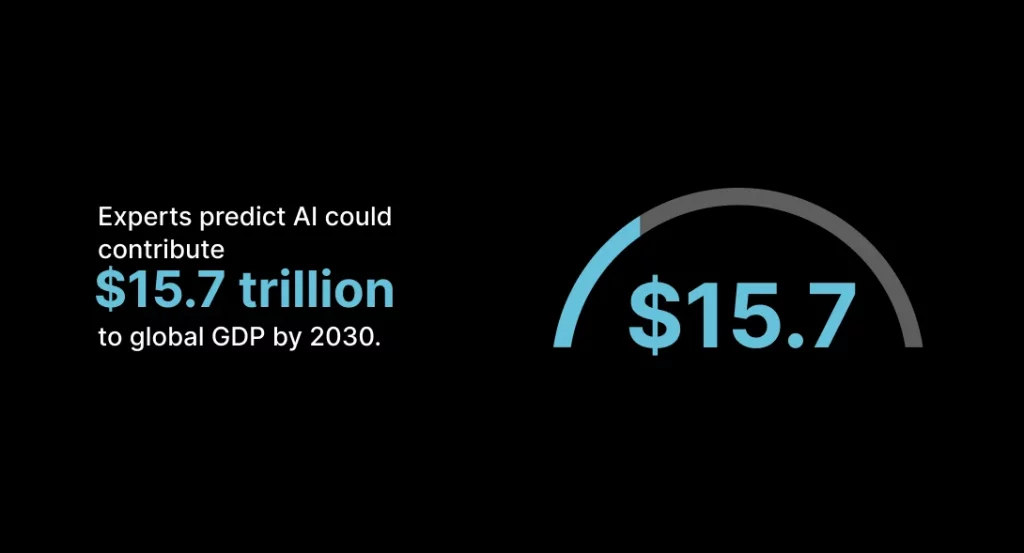-
21 Lesser-known Facts About AI That You Should Know
- 1. Meet Sophia: The First Robot Citizen By Saudi Arabia
- 2. AI’s Multimodal Capabilities
- 3. AI Pets Could Replace Dogs and Cats
- 4. AI Dates Back to the Early 1900s
- 5. AI Can Predict Death With Upto 90% Accuracy
- 6. The Gender Bias Of AI Voices
- 7. Robot Journalism May Replace Traditional Journalism
- 8. AI Shops For You (Almost)
- 9. AI Is Going Big In Business
- 10. AI Is Trying To Read Our Emotions
- 11. AI Creates Art That Makes You Think
- 12. More AI Assistants Than People
- 13. AI Is Creating Jobs, Not Stealing
- 14. AI Heats Up The Automotive Industry
- 15. AI Could Reshape The Global Economy
- 16. AI Can See The Earthquake Coming
- 17. AI’s Mysterious Black–Box Problem
- 18. China’s Tech Giant Now Tops AI Race
- 19. The First Ever AI Chatbot: Eliza (1966)
- 20. The AI Software Market Is Set To Hit $100 Billion By 2025
- 21. AI Is Now Assisting With Surgery
- Final Words
While Artificial Intelligence has been around for decades, it has only recently started to trend and become more mainstream. Because AI innovations are in the market and AI is being discussed a lot, people are more interested in knowing the facts about AI.
Recently, Elon Musk predicted that AI will surpass single human intelligence next year (2025) and all humans combined by 2029.
Artificial Intelligence is not only a powerful and transformative technology but also an intriguing and versatile field with many surprising and entertaining aspects. Check out some interesting facts about AI that highlight the wide range of ways it has impacted our everyday lives.
21 Lesser-known Facts About AI That You Should Know
Your day-to-day life probably involves at least one AI-powered service or device. Here are a few fun facts about artificial intelligence that you might not know.
1. Meet Sophia: The First Robot Citizen By Saudi Arabia

Sophia is a humanoid robot with artificial intelligence (AI) capable of interacting with people and displaying humanlike expressions. Sophia became the first robot to receive legal personhood in any country in October 2017. In addition to Sophia, Hanson Robotics has created nine other humanoid robot siblings.
2. AI’s Multimodal Capabilities
AI is no longer just about generating text. AI systems have also become adept at generating and analyzing audio and visual data. This innovation is crucial in significantly improving facial and voice recognition technology. Even when viewing angles and background noise differ, AI can achieve more accurate identification using a variety of data types. Consequently, generative AI services have grown in popularity.
3. AI Pets Could Replace Dogs and Cats

Household pets may soon be replaced by artificial intelligence without the need for vet bills.
AI-powered “animals” are now joining the growing list of robots on the market.
Among these is Go1, the world’s first intelligent quadruped robot “companion” developed by China’s Unitree Robotics. This robotic sidekick walks on all fours, just like a dog, but without leashes or collars.
4. AI Dates Back to the Early 1900s
When searching for facts about AI, this one is more likely to appear on top. AI may seem like a recent development in technology at times. However, artificial intelligence has existed since the early 1900s, so it is not a new concept. Even though the biggest breakthroughs didn’t happen until the 1950s, many early experts were responsible for making it possible.
5. AI Can Predict Death With Upto 90% Accuracy
Predicting someone’s death is a very challenging and uncomfortable endeavor. An AI trained by Stanford researchers can predict death with incredible accuracy, and it could revolutionize end-of-life care.
This AI-trained model aims to make sure patients (and families) have an accurate timeline of an individual’s last months, weeks, and days, allowing them to plan ahead.
6. The Gender Bias Of AI Voices
Ever noticed AIs have always had a splendid female voice, be it Siri or Alexa? What is the reason? Research shows that people tend to perceive female voices as more trustworthy and helpful, which is one reason why many Artificial Intelligence (AI) systems use female voices.
Many AIs have male voices, but the choice depends on the brand.
7. Robot Journalism May Replace Traditional Journalism

Another interesting fact about artificial intelligence is that robots can perform journalism tasks with the help of AI. Journalism based on robots, also known as automated journalism, is making waves in the media industry. As the media sector evolves, robots are being used by a new generation.
Robot journalism has already been used at a few events. For instance, the Los Angeles Times published a report on the earthquakes in California created by an AI-supported robot.
8. AI Shops For You (Almost)
Ever notice how online stores suggest products you might be interested in? That’s not just a lucky guess. AI algorithms track your browsing history, past purchases, and even search queries to predict what you want to buy next. This can be helpful for discovering new products you might enjoy.
9. AI Is Going Big In Business
The global market for AI in enterprise applications is expected to explode, with revenues projected to surge from $1.62 billion in 2018 to a whopping $31.2 billion by 2025. (This translates to a nearly 1,900% increase)
As a result of this rapid rise, businesses are looking for AI business ideas to gain a competitive edge and take advantage of AI’s potential.
10. AI Is Trying To Read Our Emotions
Ever feel like your phone knows how you’re feeling? AI is getting pretty good at guessing how you’re feeling. It peeks through your phone’s camera to see your face, listens to your voice like a tiny detective, and even analyzes your texts.
However, sarcasm or cultural differences can confuse AI. It also struggles with complex emotions and misses the full picture without understanding the situation. AI emotion detection is improving and could be used in customer service, education, and healthcare in the future.
11. AI Creates Art That Makes You Think

AI can push the boundaries of creativity. Pioneering artist Harold Cohen started with paintbrushes but later turned to computers in the 1970s. His creation, AARON, is a series of programs that generate original artwork.
Fast forward to 2018, and AI art took a shocking leap. An AI called a GAN (generative adversarial network) created a painting that was so realistic that it sold for a whopping $432,500!
12. More AI Assistants Than People
Another fun fact about AI is that AI assistants are poised to outnumber humans. It is predicted that there will be more AI assistants in the world than people. By 2024, forecasts predict a staggering 8.4 billion AI-powered assistants in the world, surpassing the total number of people.
This signifies a future where AI could become an integrated part of daily life, raising questions about its potential impact on human interaction and highlighting the rapid pace of AI’s development.
13. AI Is Creating Jobs, Not Stealing
The future of work and AI can spark some anxieties. Statistics might suggest AI is replacing millions of jobs, but the World Economic Forum predicts that 97 million new jobs will be created by 2025 due to AI technology. This doesn’t downplay the impact of automation, but it hints at an exciting shift. The future of work with AI seems to be one of partnership, not competition.
14. AI Heats Up The Automotive Industry
The future of automobiles is getting smarter. US National Highway Traffic Authority estimates autonomous vehicles could save 300 billion USD by 2025 with the help of AI. With these autonomous vehicles, accidents will go down, and safe driving will go up.
It is one of the fascinating facts about AI that by 2030, 95-98% of new cars are expected to be equipped with some form of AI, which hints at a future of smart, efficient, and possibly driverless cars.
15. AI Could Reshape The Global Economy

AI could be a game-changer for the global economy. Experts predict AI could contribute $15.7 trillion to global GDP by 2030.
AI could be like a super-powered booster shot for businesses, helping them run smoother, create new ways of doing things, and maybe even launch brand-new industries. The future’s looking bright, with AI potentially becoming a major player in the global economy.
16. AI Can See The Earthquake Coming
AI isn’t just about creating art or predicting your mood; it’s even trying to be a fortune teller for Mother Nature. Researchers use AI to analyze massive datasets of past earthquakes, volcanic activity, and weather patterns. By finding hidden clues in this information, AI can potentially identify areas at risk and give us a precious heads-up before disaster strikes.
While AI predictions aren’t perfect yet, the more data it analyzes, the better it gets at spotting patterns and predicting potential threats.
Bonus Read: Best AI Programming Languages for 2024 and Beyond
17. AI’s Mysterious Black–Box Problem
Did you know that AI’s biggest challenge is the black box problem? This refers to a challenge AI software developers face when understanding the system’s decisions. The developers of AI systems are often unable to comprehend why certain algorithms operate in the way they do. This lack of transparency is concerning.
Imagine a doctor who relies on an AI system for diagnosis without understanding its reasoning. Due to this lack of explainability, AI cannot be trusted in critical situations and cannot be improved. For AI to become responsible and ethical, we must address this issue.
18. China’s Tech Giant Now Tops AI Race
The world’s most valuable AI company isn’t a household name in the West. China’s Bytedance, the company behind the popular social media app TikTok, holds the title of “biggest AI unicorn” with a staggering valuation of $140 billion.
This surpasses Elon Musk’s second-place contender SpaceX, valued at $100.3 billion. This interesting fact about AI highlights the booming AI sector in China and its potential to be a major player in shaping the future of artificial intelligence.
19. The First Ever AI Chatbot: Eliza (1966)

We have many of the best AI chatbots on the market, but chatbots aren’t new. The first chatbot, Eliza, was created back in 1966 by Joseph Weizenbaum. Eliza could not engage in philosophical debates, but it was a crucial step toward creating a machine that could mimic conversation.
Unlike today’s sophisticated AI, this early program relied on pattern recognition and keywords to respond to user input. Eliza pioneered the evolution of chatbots, ultimately leading to the natural and engaging virtual companions we interact with today.
20. The AI Software Market Is Set To Hit $100 Billion By 2025
The global market for AI software is poised for explosive growth, with estimates suggesting it could reach staggering heights by 2025. While precise figures vary, with some analysts predicting a $100 billion market and others even higher at $126 billion.
This has resulted in a growing demand for AI and ML development services across multiple sectors, potentially transforming how we work, live, and interact.
21. AI Is Now Assisting With Surgery

The application of AI in surgery has expanded beyond just patient diagnosis. These intelligent systems are finding their way into the operating room, helping surgeons make decisions and even assisting with delicate procedures using robots. Using AI in the operating room may enhance the surgeon’s skills and improve outcomes.
Final Words
As we conclude our facts about AI, it’s clear that this technology has only scratched the surface of its potential. There’s so much to learn about AI and Machine Learning, with endless possibilities.
Despite the challenges, AI has undeniable potential benefits. AI promises to revolutionize industries and improve our daily lives over the coming years. AI is just beginning its journey of discovery, and the possibilities are limitless. Hire AI engineers at OpenXcell, and see how our engineers can assist you in building an innovative AI solution.








